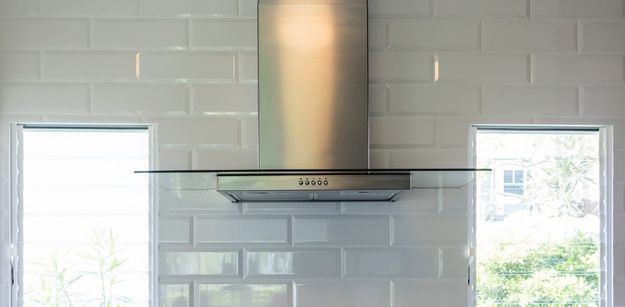Proper kitchen ventilation is necessary to ensure healthy and good-grade cooking, be it in a commercial kitchen or the residential one.
In the kitchen space, the foul smell of food, dust and dirt build-up, and other particles stick to the surroundings. It could be anything like pillows or curtains in the home sinking the smell. Or it may be the commercial kitchen where the grease and smoke build up on the ceilings or the walls. The kitchen exhaust in each of the cases is efficient and beneficial. It circulates the quality and healthy air in the kitchen space and eliminates all the dirt particulates from the kitchen area.


What Are Kitchen Exhaust Systems?
Numerous units make up kitchen exhaust systems. Hoods, makeup-air systems, HVAC, exhaust fans, and other devices fall under this category. To sustain performance, all of these units must function within the set limits and work together. Consequently, the ventilation in the kitchen area will be good and clean. It helps eliminate cooking vapors, heat, grease particulates, steam, and odors.
Purpose of Installing Kitchen Exhaust System
The primary reason for installing a kitchen exhaust system is to eliminate the smoke, heat, steam, dirt, and grease from the kitchen. Such systems ventilate the heat and moisture and keep the kitchen clean. Thus, assuring the kitchen’s functionality remains at its peak and is helpful in any emergency fire hazards. Benefits that can be availed from kitchen exhaust system installation involve:
Ensure Healthy Cooking and Safe Kitchen Environment
There is no doubt that cooking reduces the kitchen air quality. Thus, influencing the health of individuals present in the kitchen and nearby surroundings. The reason is that several harmful substances during cooking are released into the atmosphere that continues building up in space. As a result, molds, and mildew take place and multiply every day.
Here, the kitchen exhaust ventilation system helps improve air quality and assures good health in return. The exhaust system absorbs all the heat, smoke and any harmful particulates released and throws them outside via the ducts.
Prevent Emergency Fire Hazards
Keeping your kitchen clean regularly is important. Lack of cleanliness in the exhaust system and ducts increases the risk of fire outbreaks or creates a fire hazard. In addition, the exhaust system is blocked by grease and other impurities.
Here, the kitchen exhaust system absorbs all the particulates from sitting on the kitchen or cooktop surfaces. Thus, reducing the possibilities of any fire hazard occurrences.
Assures Energy Efficiency
A clean kitchen exhaust system and vent ensure good airflow. Thus, energy efficiency rises. A well-ventilated kitchen simply improves the efficiency of the appliances and makes cooking simpler and more fun. Efficiency also translates into higher production rates and cheaper maintenance expenses. As a result, long-term savings include greater energy and money.
Fire Prevention
Fire prevention remains the most vital benefit of a kitchen exhaust cleaning system. Installing this system and cleaning it thoroughly helps eliminate the hazardous and flammable grease and dust particles. Thus, helping in saving the kitchen as well as the people cooking there.
Ensures Environmental Safety
Enhancing the kitchen’s functioning with an exhaust system leads to higher productivity. In commercial kitchens, staff efficiency improves as they are safe from steam, cooking fumes, and other airborne contaminants. Also, no one gets sick and health is retained at its best.
Working Principles of Kitchen Exhaust System
There are two different types of kitchen exhaust systems. It includes ducted and ductless. The ducted ones as the name implies have ducts that handle the airflow through them. These are ideal both for residential as well as commercial kitchens. On the other hand, the ductless systems soak in the poor air, filter it, and again flow it through the kitchen.
Elements of Ducted Kitchen Exhaust
- Hood: All hoods, including canopy and extractor hoods, are installed over the stove. The hood is vital equipment and a component of an exhaust system that removes the grease, steam vapors, smoke, and unwanted smells from the kitchen. There are typically two primary categories of hoods. Type I and Type II hoods are among them. Appliances that emit smoke or grease are covered by Type I hoods. To trap the pollutants and some oil, on the other hand, Type II hoods are used in conjunction with Type I hoods.
- Grease Filters: When the kitchen’s canopy soaks in the air released from the cooktop, that air is passed through the filters. It ensures no buildup of dust, dirt, or grease build-ups. However, it is essential to clean these filters regularly to retain the functioning of grease filters.
- Access Panels: Access panels provide access to ducts for easy and efficient cleaning. These can be installed anywhere you require and whenever so there are no delays in cleaning.
- Exhaust Ducts: The purpose of exhaust ducts is to connect the fan and hoods. When the air is absorbed via grease filters and hoods, it is further sent through the ducts and then outdoors via the fan.
- Exhaust Fan: The exhaust fan is the component that filters the air and assures only quality airflow within the kitchen. Thus, eliminates the fumes and dirt particulates.
How Does Ductless Kitchen Exhaust Work?
The way ductless kitchen exhaust systems operate differs from how ducted systems do. The ductless system’s filter is constructed from paper and charcoal. Over the stovetop, a large fan is installed. The system’s ability to pump air back into the kitchen and filter it more quickly.
The second thing it does is suck air into a blower through a filter. This charcoal filter is typically round in shape. As a result, air circulates back into the kitchen through the vent after leaving the blower.
Conclusion
An exhaust system contributes to keeping the kitchen area clean and the air healthy. No foul smells, grease vapors, or molds will not accumulate on the cooktop and are absorbed by the system and thrown outdoors. Thus, leaving the establishment fresh, healthy, and clean. Besides, it is necessary to get the exhaust system cleaned and examined by professionals. After all, following strict preventative maintenance can help in keeping the kitchen smooth and functional.



